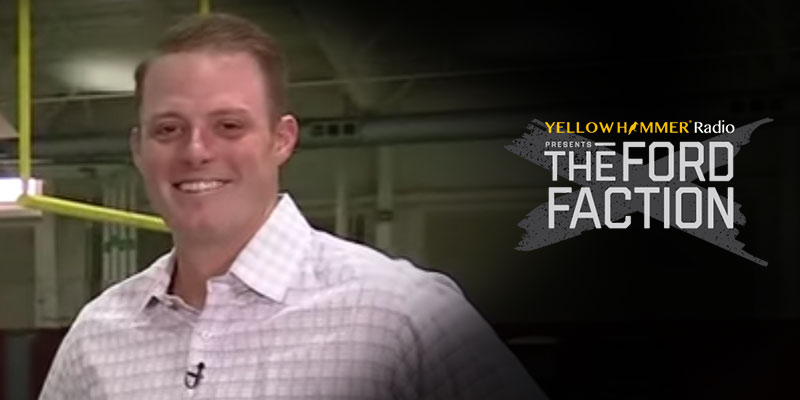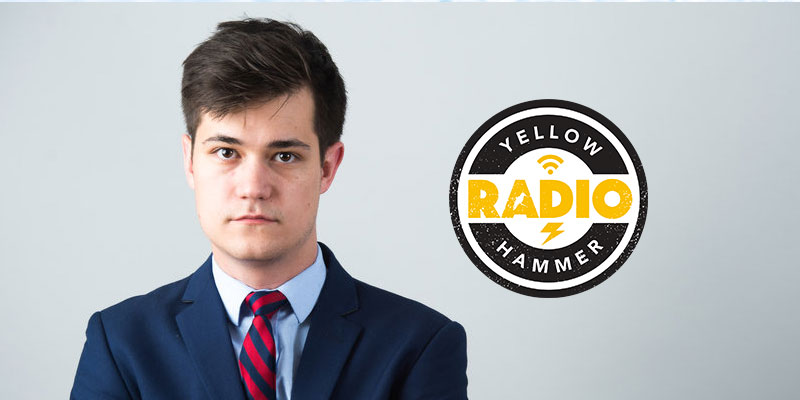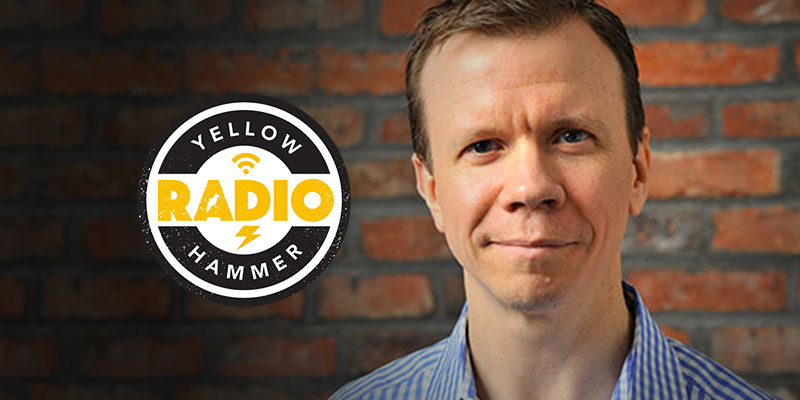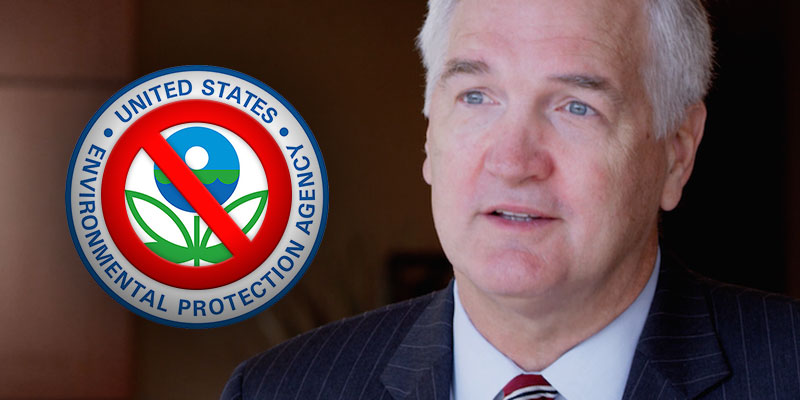Cord Sachs is a Birmingham-based leadership expert and the CEO of FireSeeds, a company that helps companies find and grow great leaders and “the company behind many of Alabama’s fastest growing companies.”
The full conversation with Mr. Sachs can be heard on the Yellowhammer Radio podcast or in the video above, and a lightly edited transcript of his interview with Yellowhammer’s Andrea Tice and Scott Chambers can be read below.
Subscribe to the Yellowhammer Radio Podcast on iTunes. Learn more about Cord Sachs and Fireseeds at www.fireseeds.com
Scott Chambers:
Welcome back Yellowhammer Nation, it is Yellowhammer Radio, SuperStation 101 WYDE, I am Scott Chambers.
Andrea Tice:
Andrea Tice here as well, and we have Cord Sachs on the line.
Scott Chambers:
Yes we do. Mr. Cord Sachs from FireSeeds who’s leveraging 15 years of recruiting and leadership development experience. Cord launched FireSeeds to recruit dynamic leaders and install leader development strategies in world changing businesses. We’ve been talking about board room to family room, and all kinds of great stuff. Cord, it’s good to have you back on the program, buddy, how are you?
Cord Sachs:
Scott, Andrea, it’s good to be here.
Scott Chambers:
Glad to have you back on the program today, Cord. The topic for today is how do you know someone is trustworthy? I think it’s a pretty important question to know the answer to, so I’ve got to know, how do we know if someone is trustworthy? Cord, how do we know when we can trust someone?
Cord Sachs:
Absolutely. That’s the question we’re going to answer, and I’m going to give everybody a grid to think through as they ask that question. It comes up every day, all the time, whether we know we’re asking it or not. I mean think about it, right now a lot of people this season are asking, “Can I trust my accountant to find all my deductions?”
Scott Chambers:
I ask that one all the time.
Cord Sachs:
You might be going to get your hair cut today, Andrea, and you’re asking, “Wow, can I trust my hairdresser to cut my hair?”
Scott Chambers:
I’m going to get a haircut after the show. I hope he cuts it right.
Cord Sachs:
Yup, I just had mine cut. You know, “Hey, can I trust that individual, new babysitter to come over and take care of my kids?” And on and on and on.
Andrea Tice:
Oh yeah, yeah.
Cord Sachs:
Having a clear grid to think through, somebody trustworthy or not, it’s a pretty big deal.
Andrea Tice:
Yeah, it’s like the bedrock of all relationships, whether we realize it or not.
Cord Sachs:
Absolutely.
Andrea Tice:
It’s the bedrock. So how would you define trust?
Cord Sachs:
I think you’ve got to define it first, and let’s get a really clear definition. This is a definition we came up with as we were building all of our leader development monthly offerings through WildSparq, that’s one of the foundational questions we had to ask first, because you’ve got to build a foundation for trust. The definition we came up with is, trust is someone’s confidence in someone’s intent, ability, and execution. So I’ll say it again, trust is confidence in someone’s intent, ability, and execution.
Andrea Tice:
Okay. So you want to break those down for us so that we get a better idea of exactly how you determine someone’s intent. I think ability is kind of, you can kind of spot that, but go ahead. You take it away and explain more.
Cord Sachs:
Absolutely. Let me tell you a little story, too, to kind of give us a story we can refer to through these three lenses. There’s one area I think that we would all say we’re always hesitant, at least I am, I know nothing about cars. So when I need to get my car fixed I’ve got to take it to someone I know that I can trust, because I know absolutely nothing about what’s under the hood, and someone could take me to the cleaners pretty quickly in that scenario.
I used to have a guy that I always took my car to, and he got old, he retired, and [inaudible 00:03:13] I had to find a new mechanic. So I started asking around, and not only did I hear this over and over and over again, but the individuals kept telling me, “You got to go use Bob over at the garage off 31.” So after about the fifth person told me that I sad, “Okay, this is easy, then. I’ve going to at least go try and call Bob.”
My scenario was my son had been given a car from his grandma so that he could fix that car up, sell it, and buy a new car. He’s going to be 16 this summer, and so I had to take this car to Bob and get Bob to look at it, and say, “Hey, I need you to fix this thing so we can sell it.” Bob spends a half day looking at the car, all the little issues we thought could be wrong with it, and he calls me back and says, “Cord, I got good news. I can fix everything on this car, but because I know what you want to do, you want to sell this thing and get some money out of it, if I fix everything on this car it’s not going to be worth enough money for you to make any money off of it. So I think it would be better if you didn’t use me to fix your car.” As I tell you that story, what do you think that did initially in my trust of Bob?
Andrea Tice:
Well, he … My gosh, that is-
Scott Chambers:
You realize he was an honest person.
Andrea Tice:
Yeah, that established a major element of trust in his intent to serve you in the best way possible, not in getting the money for himself.
Cord Sachs:
Absolutely. And you said earlier, Andrea, trust is the foundation of every relationship. The first thing we’re always thinking about in light of trust is, what is the person’s intent? And really intent is this: intent is someone’s sincerity that they have my best interest at heart. Do they really want what’s best for me, regardless of the situation? You can see it here with Bob, obviously he knew my situation, and what was best for him was to fix this car and make a lot of money, but what was best for me was that I didn’t fix it at all and I bypass his service. Because he showed me that level of intent, I now use him any time I have a real opportunity for him to fix one of my vehicles.
Andrea Tice:
Yeah, wow, that’s a great example. I wish we could all have that much clarity with the people we work with in exposing their intent.
Scott Chambers:
Absolutely. There’s no question about that. That’s very, very interesting. So, when I know that a person genuinely has my best interest at hand, Cord, and I know that I can trust their intent, what’s the second part of the definition regarding the confidence in an ability part there?
Cord Sachs:
Yeah, ability. Obviously if I know someone has my best interests at heart, I still need to know they have the ability to do what I need them to do. I need to know they have the knowledge, the skills, and the resources to do that well.
I look, and I see that Bob has over 12 years of experience running a garage, he’s told me about his mechanics and how they’ve come from reputable dealerships all over. I begin to understand and build that he does have the knowledge, and he has the skills. Then as I go by the shop and I see this nice shop, it’s organized and has all the mechanical apparatuses and tools, my trust in his ability to do the job is increasing. Obviously if someone has my best interest at heart, I also got to know they have the ability to do the job well. Let’s say I were to come by Bob’s garage and a tornado has taken down his shop. Well, Bob still has the knowledge and he has the skills, but he no longer has the resources to do the job well. In that case, he no longer has the ability.
But as long as those three things are in place, knowledge, skills, and resources, and then he has a track record for those, I should be able to have confidence in someone’s ability to do the job well.
Andrea Tice:
Okay, so you’ve talked about intent and ability, and it seems like those alone would be significant in choosing a person who is trustworthy. But you also add execution, so there must be some element to that that is necessary, do you want to explain that?
Cord Sachs:
Yeah, that’s right. There are plenty things, and there are plenty of people that have our best interest at heart, and they’re able to do what we’ve asked them to do, but their execution is off. Really the question here is number one, is this a priority for them? And number two, do they have the capacity in this season to do that and to do that job for me?
If I were to go to Bob and Bob were to tell me and show me his shop, and I see his knowledge and his skills and his resources, he’s already proven to me he has my best interest at heart. But if he tells me, “Yeah, I can knock that job out in a couple days,” and yet he knows that he has 50 cars waiting, well he doesn’t have the capacity right now to do that well.
Capacity to be able to deliver is just as important as having the knowledge and skills. We all know people that we know they love us, they know that they care for us, they want what’s best for us, they’re completely able to deal with [inaudible 00:08:25], but we just know when I ask them to do that certain thing they’re not consistent on the execution. I’m going to be a little vulnerable here, and I’m trying to grow in this, but calling people back is one of those areas that I struggle with sometimes.
Scott Chambers:
I think we’re all guilty of that.
Cord Sachs:
Think about it, we have their best interest at heart, we really do want to talk to them, we want to help them, we want to converse with them. We’re able, we know how the phone works, we have their number in most cases, but for whatever reason the business of life just keeps me sometimes from consistently calling people back when they expect to be called back. I really have to manage expectations on the execution of my phone calls, because if I don’t I begin to lose trust with other people in the other areas. So intent, ability, and execution all need to be in place for us to have true confidence when we go to someone else to ask them to do something for us.
Andrea Tice:
Okay. All right. You mentioned your own area that you want to improve in, so how do we evaluate ourselves in these three areas so we can grow … identify it and then grow and become more improved with execution or whatever the area is.
Cord Sachs:
I think you just do it in a simple list of when you think about intent. Do I really have the best interest or have the best desires to help that other individual? Do I really want to serve them, do I want to give to them, or do I want to take away from that relationship. If you can answer positively to that that’s typically one we can check ourselves pretty quickly. We know whether our intent is good in that scenario.
Then really on the ability side, asking yourself the questions, do I know a lot about what I promised to do, number one. Number two, do I have the skills and resources to do that? Then number three, simply, have I done this before? Do I have the confidence in my ability to be able to promise that to someone else?
Then simply on the execution side, is this a priority for me? When I look in my schedule do I have the capacity to come through on what I promised to do? If we give ourselves kind of that evaluation before we say yes, and make promises to others, we will begin to earn people’s trust more and more and more.
Sometimes the best thing we can do in scenario to earn trust, is to say, “You know, I don’t think I could do that for you.” A big deal here is where we’re learning how to build trust, and then have a gauge as we think about trusting others, to kind of have this definition of our confidence in someone’s intent, ability, and execution.
Andrea Tice:
You brought up a good point, because even though you may not hit all three levels in that you are able to perform the last one, which is execution, even admitting it still reinforces the trust aspect, because you’re being honest about where you’re at.
Cord Sachs:
Absolutely. What most people want is they want us to be honest, they want us to be real, and we’re all busy, so if we let people know that they’ll usually give us lot of grace and trust won’t be hindered.
Scott Chambers:
Grace is a good thing, that’s for darn sure.
Andrea Tice:
Trust and grace, it’s a good combo.
Cord Sachs:
Absolutely. I need it every day.
Scott Chambers:
Amen, brother. Amen. Cord, it’s been a pleasure chatting with you today. Unfortunately that music means we are out of time and have like 20 seconds until the clock cuts us off, so we’re going to have to wrap things up for today, but we’ll chat again next Tuesday.
Cord Sachs:
Awesome. Looking forward to it.
Scott Chambers:
Cord Sachs with FireSeeds, tell everyone how they get in touch with you and FireSeeds, sir.
Cord Sachs:
Yes, simply go to fireseeds.com, you can learn about how we recruit multiplying leaders, and then we help companies build leader development strategy to help build their culture within their organization. Love to hear from them.
Scott Chambers:
All right, appreciate it Cord Sachs.













